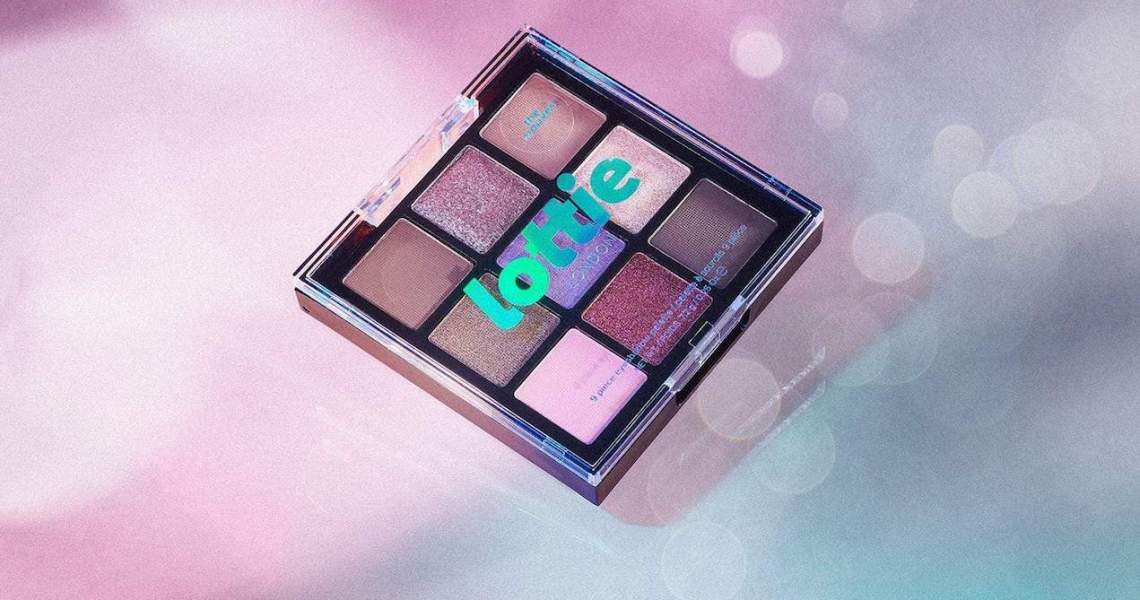After preparing for a U.S. launch with TikTok in Dec. 2020, Gen Z-focused cosmetics brand Lotti London has now arrived at Walmart.
The Ciaté London-owned brand is located in 598 stores and Walmart.com, as of Tuesday, Lottie London products will retail for between $6 and $15. Charlotte Knight, Ciaté London founder and CEO, said Lottie London’s ambition with its Walmart partnership is to create an “immersive experience” at the point of sale. This includes tactics like providing QR codes for virtual try-on and serving up branded social media to drive engagement “in the aisles,” said Knight.
Gen Z became the breakout demographic of cultural focus over the last year within fashion and beauty. With the help of TikTok, Gen Z is responsible for trends like bushy laminated brows, faux freckles, colorful hair and even flared jeans. But the swift pace of emerging trends puts a strain on both brands and retailers to stay relevant. Lottie London, Ciaté London and sister skin-care brand SkinProud saw a 20% decline in year-over-year sales in 2020, due to Covid-19, but remained profitable, said Knight. Previously, she anticipated a 25% decline in annual sales for all brands and expects a 30% year-over-year sales growth for the business in 2021.
“With all of the changes in consumer purchasing and behavior, Walmart is laser-focused on Gen-Z customers,” said Knight. “We’re working very closely with Walmart on how can we update the [gondola] more often and bring trends to the beauty aisle more reactively. It is something that big-box retailers have struggled with over the years because they plan far out in advance, but Walmart is open to how we can do it.”
Walmart is not the only retailer sharpening its Gen-Z strategy. Target worked with fast-beauty brand Winky Lux to sell its skin-care products, complete with immersive displays when the category launched in January.
Walmart is expected to make up 60% of Lottie London’s U.S. sales, said Knight.
The global pandemic has both subtly and dramatically influenced shopping habits and in-store experiences in the U.S. Customers can no longer access in-store free sampling from retailers like Sephora and Ulta, curbside pick-up is now an ongoing option of delivery, and a new generation of consumers have become familiar with QR codes due to their use as a contactless menu option in bars and restaurants. These changes pushed both brands and retailers to rethink what shopping in-store offers to customers, and challenged them to do better.
Ad position: web_incontent_pos1
“QR codes make the world of marketing easier because, with them, you can interact and deliver educational messaging and video content through that code,” said Knight. “The conversion to purchase should be easier and higher.”
Other brands such as Anastasia Beverly Hills and Lime Crime have used QR codes in the past to offer virtual try-on or augmented reality. Lottie London’s LGBTQ Pride collection launch in June will have QR codes on the product packaging that will bring shoppers to an Instagram or TikTok tutorial video.
Nora Zukauskaite, Lottie London head of global marketing, added that Lottie London could prompt people to participate in a TikTok hashtag challenge, such as its current #LottieLinerHack, to promote the Walmart launch. Between April and June, Lottie London has leveraged a global digital campaign across TikTok, Twitch, and Instagram to promote its Walmart partnership. In April, the theme was affordable makeup hacks, which was followed in May by creative makeup looks. In June, the theme is LGBTQ pride.
“For the U.S. market, which is relatively new to us, a lot of consumers will get to know what the brand stands for. And in this case, it will unlock brand pillars, whether it’s makeup hacks, affordability or community,” said Zukauskaite.




